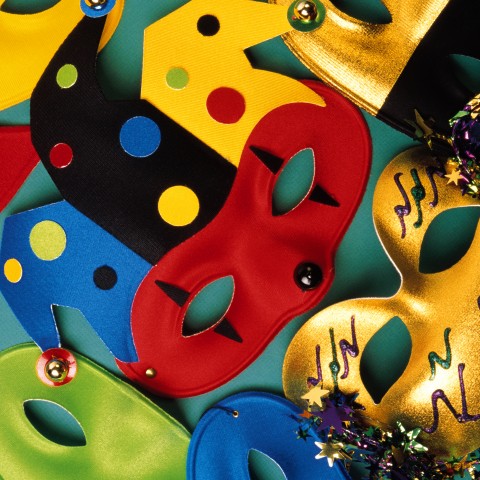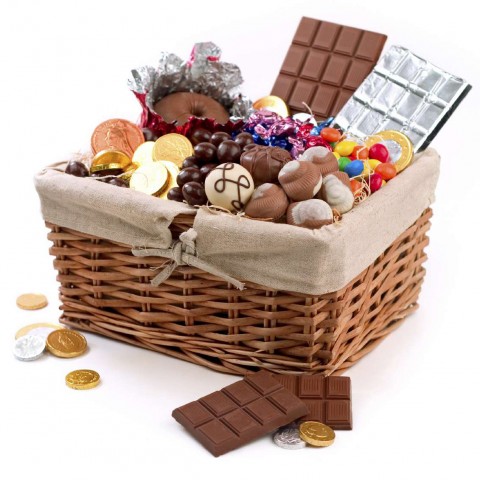
Carnival is deeply rooted in history and is observed in numerous countries before Lent fasting. German Carnival, in particular, is a time of fun and seeming madness, and no two parts of Germany celebrate this holiday exactly the same way. In this article, we’ll mostly be focusing on the celebrations in Rhineland, since German Carnival traditions vary so much.
But keep in mind that wherever you find yourself in Germany, some common aspects are likely to show through. Take, for instance, German Carnival masks, German Carnival songs, and maybe even some German Carnival games!
Here at GermanPod101.com, it’s our goal to help you learn the language in context of the country’s culture—and have fun while doing so! That said, let’s go ahead and take a closer look at Karneval in Germany!
1. What is German Carnival Season?
The German Carnival is a time of festivities leading up to the beginning of Lent. If you find yourself in Germany during the German Carnival season, you may find yourself surrounded by German Carnival costumes or indulging in some delectable German Carnival food (think: Mutzenmandeln, Berliner, donuts, pancakes, fritters, or carnival Kräppel). After all, this period of time is meant to be a time of indulgence before the fasting begins.
2. When is German Carnival?
The date of Germany’s Carnival season varies each year, as it’s determined by the date of Easter. For your convenience, here’s this holiday’s start date for the next ten years:
- 2019: March 4
- 2020: February 24
- 2021: February 15
- 2022: January 31
- 2023: February 20
- 2024: February 12
- 2025: March 3
- 2026: February 16
- 2027: February 8
- 2028: February 28
The culmination of the Carnival, the Rose Monday (Rosenmontag) is a feast that takes place forty-eight days before Easter Sunday. Since the Carnival lasts several months, it’s also referred to as the fifth season of the year.
3. Reading Practice: How is German Carnival Celebrated?
Read the German text below to find out about some German Carnival traditions, including German Carnival parades and German Carnival floats! You can find the English translation directly below it.
—–
Am Anfang werden die Rathäuser von Frauen gestürmt, die den dort arbeitenden Männern die Krawatten abschneiden. In den folgenden Tagen sind manche Straßen plötzlich von hunderten Menschen versperrt. Was tun sie dort? Sie lassen sich von den bunt geschmückten Wagen einer sehr lauten Prozession mit Süßigkeiten bewerfen. Und die ganze Zeit über sieht man Menschen, die sehr seltsam gekleidet sind.
Eine zentrale Rolle beim Karneval spielen die Karnevalsvereine, die es in jeder Stadt gibt. Die Mitglieder treffen sich außerhalb der Karnevalszeit um die Wagen zu bauen, von denen dann bei den zahlreichen „Zügen“ in der Karnevalswoche Süßigkeiten in die Zuschauermenge geworfen werden. Die Wagen haben immer ein bestimmtes Motto, zum Beispiel ein umstrittenes Thema des Jahres, welches dann in Form von großen karikativen Figuren dargestellt wird. Die Karnevalsvereine veranstalten aber auch so genannte „Sitzungen“, bei denen sich alle in ihren Kostümen oder in speziellen Trachten treffen und auf einer Bühne satirische Reden gehalten werden.
Für viele bedeutet Karneval neben einer Woche voller Partys auch ein exzessiver Alkoholgenuss. Es ist deshalb (besonders am Rosenmontag) vollkommen normal, das man in Bussen und Bahnen kaum einen Sitzplatz findet, da viele ihr Auto zu Hause lassen um ihren Führerschein nicht zu gefährden.
—–
At the beginning, town halls are stormed by women who cut off the ties of the men working there. In the following days, some streets are suddenly blocked by hundreds of people. What are they doing there? They have sweets thrown at them from the colorfully-decorated floats of a very loud procession. And all the time you can see people dressed in very strange ways.
Carnival associations, which can be found in every town, play a crucial role. The members meet outside the Carnival season to build the floats, from where sweets are thrown into the watching crowd at the numerous Züge (“Carnival processions”) in the week of Carnival. The floats always have a special motto, a controversial issue of the year for instance, which then is illustrated with large caricatured figures. The carnival associations also organize so called proceedings, at which everyone meets in their costumes or in special liveries and satiric speeches are held on a stage.
This day is followed by the “Carnation Saturday,” “Tulip Sunday,” “Rose Monday,” “Viola Tuesday,” and “Ash Wednesday.” On all of these days, processions and parties take place in many cities. As the “Rose Monday” traditionally is the highlight of Carnival, most Carnival processions take place on this day. Though it is no official holiday, most employers in Carnival areas make it a holiday for their employees.
4. Additional Information
For many people, Carnival means, apart from a week full of parties, also the excessive use of alcohol. This is why it is (especially on “Rose Monday”) completely normal that you can hardly get a seat in buses and trains, because many people leave their car at home to not risk their driver’s license.
5. Must-know Vocab
Here’s some vocabulary you should know for Carnival Season in Germany!
- Bonbon — Candy
- Karnevalszeit — Carnival Season
- Süßigkeiten — Sweet
- Dreigestirn — Triumvirate
- Fastnacht — Shrove Tuesday
- Rosenmontag — Rosenmontag
- Elferrat — Council of eleven
- Verkleidung — Costume
- Karnevalsumzug — Carnival parade
- Fasching — Carnival
- Aschermittwoch — Ash Wednesday
- Maske — Mask
If you want to hear each of these vocabulary words pronounced, check out our German Carnival Season vocabulary list. Here you’ll find each word accompanied by an audio of its pronunciation.
Conclusion
What do you think of German Carnival? Do you celebrate Carnival in your own country, or a similar holiday? Let us know in the comments!
To learn more about German culture and the language, visit us at GermanPod101.com. We offer an array of insightful blog posts, free vocabulary lists, and an online community where you can discuss lessons with fellow German learners. You can also check out our MyTeacher program if you’re interested in a one-on-one learning experience with your own personal German teacher!
We hope you enjoyed learning about German Carnival, and that you found discovery in yet another unique facet of German culture. Know that all of your studying and hard work will pay off! You’ll be a master in the language and a pro on cultural knowledge before you know it!













